
Stigma is a major barrier to care for people with Substance Use Disorders (SUD). Multiple types of stigma, rooted in misunderstanding and moral judgment, lead to discrimination, shame, and isolation, affecting individuals’ physical and mental health, access to care, adequate treatment support, and social support. Many see SUD as a personal failure rather than a medical condition, fueling harmful stereotypes, even in healthcare. Addressing stigma is essential for providing compassion and support for recovery. Learn why your words matter and how to reduce stigma. Explore the mental health and additional resources provided. Be sure to check out our educational materials that support OPEN’s stigma initiative.
Stigma is a negative assumption about a person, or a group of people, based on a specific belief or behavior.1 Stigma affects everyone. A World Health Organization (WHO) study ranked substance use as the most stigmatized condition globally, with alcohol use fourth.2 Ending the stigma toward people experiencing addiction is more important now than ever, as the rates of substance use disorder and mental health concerns have risen dramatically during the COVID-19 pandemic.3,4 Social distancing measures have introduced additional barriers to receiving care for substance use and mental health concerns.
Stigma can affect how someone is treated by society. Patients with SUD are often stigmatized, despite SUD being a medical disease that patients do not choose to have. Stigma may also be compounded by other types of bias, such racial, gender, religious, age, and economic biases, further worsening experience and access to care.
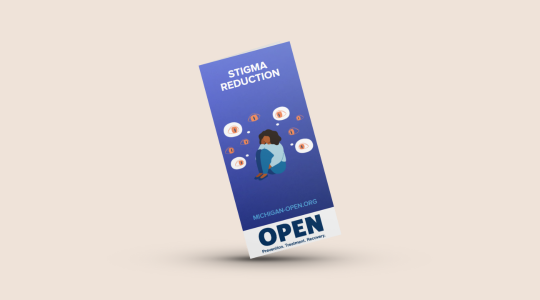
Learn how understanding and addressing stigma can make a profound impact on care, recovery, and wellbeing.
Stigma can be categorized into several types: public stigma, clinical stigma, internal stigma, and stigma within the recovery community.5 Public stigma refers to the negative attitudes and perceptions held by society at large, often fueled by stereotypes and misinformation. Clinical stigma is encountered within healthcare settings, where biases and prejudiced attitudes from medical professionals can hinder effective treatment. Internal stigma occurs when individuals internalize these societal prejudices, leading to feelings of shame and worthlessness. Lastly, even within the recovery community, stigma can persist, manifesting as judgment or lack of support among peers who are also striving for recovery. Understanding these diverse forms of stigma is crucial for creating more inclusive and supportive environments.
Public Stigma: Driven by stereotypes about people with SUD: such as the perception they are dangerous, perceived moral failings, SUD is a choice rather than a disease.
Internalized Stigma: Blame self, feel guilt, fear, adopt negative attitude towards themselves.
 Clinical Provider Stigma: Belief that treatment is ineffective, impacts clinical care and treatment decisions.
Clinical Provider Stigma: Belief that treatment is ineffective, impacts clinical care and treatment decisions.
Recovery Community Stigma: Medications versus “abstinence,” belief that the person is not in recovery. There is evidence-based treatment for Opioid Use Disorder with Medications for Opioid Use Disorder. Recovery and sobriety are two different things. Sobriety is the absence of any substances. Recovery is defined as a process of change through which individuals improve their physical, psychological, and social well-being, live a self-directed life and strive to reach their full potential.6
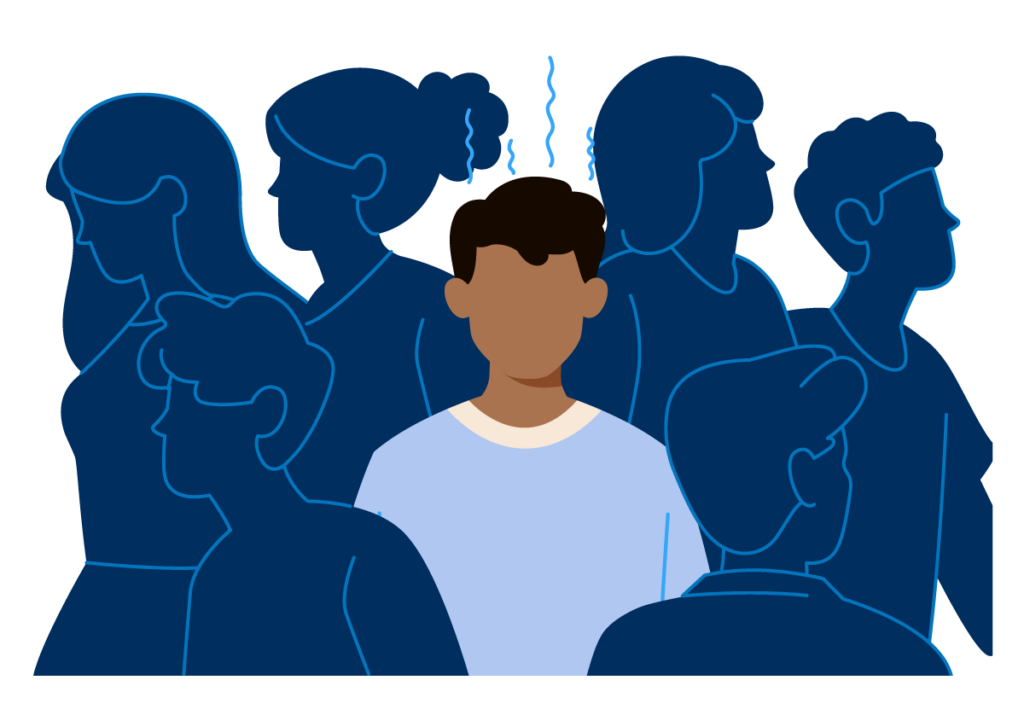
Due to the stigma surrounding substance use, there are negative assumptions about patients with SUD.1 Consequently, it can be difficult for people, including healthcare workers, to recognize SUD as a medical condition that requires treatment just like high blood pressure, heart disease, or diabetes. It is important for healthcare providers to recognize risk factors for SUD and symptoms of SUD so patients can receive appropriate medical treatment.
Learn more about how to approach patients who may be at risk for SUD, screening tools, provider-patient conversation starters, and other SUD care resources on OPEN’s SUD Care Coordination website.
SUD is a chronic medical disease that is listed in the American Psychiatric Association’s Diagnostic and Statistical Manual of Mental Disorders (DSM-5) and requires ongoing medical treatment from a physician.8,9 There are genetic and environmental risks to developing SUD, just like with heart disease, cancer, and diabetes. Similarly, SUD, like many other medical conditions, can be treated with medications, therapies, and lifestyle changes.
Addiction is a complex and multifaceted condition that affects millions of people worldwide. It is not simply a matter of willpower or moral failing; rather, it is a chronic brain disorder with profound biological underpinnings. The journey of addiction involves changes in the brain’s structure and function, particularly in areas related to reward, motivation, and memory.10 These changes create a profound compulsion to seek and use substances, despite a multitude of harmful consequences.
When communicating with patients, it is important to avoid stigmatizing language. There are several strategies to help reduce stigma in your community, including sharing stories of people in recovery and altering the type of language you use.
Join Matthew Stefanko, a past strategic advisor at Shatterproof, as he discusses managing addiction stigma in treating pain and opioid use disorder. Discover key strategies to reduce stigma for patients, effective communication tactics, and large-scale health promotion campaign successes. Learn about the importance of language, surprising findings about healthcare professionals’ stigma, and actionable measures you can take to support those with substance use disorders.
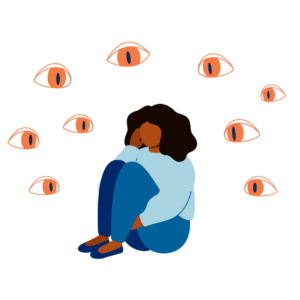
Language plays a pivotal role in reducing stigma associated with Substance Use Disorder (SUD) by shaping perceptions, influencing behaviors, and promoting empathy.11 How we talk about opioid misuse and substance use can either contribute to or reduce stigma, making it crucial to use language that emphasizes SUD as a chronic medical disease, not a personal choice or failing. A shift in language not only impacts how individuals with SUD view themselves—reducing internalized shame and encouraging recovery—but also influences the attitudes and behaviors of healthcare providers, fostering more respectful, unbiased care.
While there are many examples of words to use and words to avoid when talking about SUD, here are some common words and phrases to consider:
| Instead of saying: | Try saying: |
|---|---|
| Addict/abuser | Person with SUD/person living with substance use disorder/person who uses drugs |
| Alcoholic | Person with alcohol use disorder/person living with alcohol use disorder |
| Clean/dirty urine (urine testing) | urine negative/positive for or substance not detected/detected |
| Clean (person) | Person in recovery from substance use/person in remission from substance use disorder or addiction |
| Criminal/felon/ex-con | person with justice involvement/person with criminal legal system involvement |
| Drug abuse/habit | Substance misuse |
| Drug offender | Person arrested or prosecuted for substances |
| Fired/terminated | Guided to more appropriate treatment setting |
| Illicit | Criminalized |
| Medication assisted treatment (MAT)/opioid replacement therapy | Medications for opioid use disorder (MOUD/Medication for addiction treatment (MAT) |
| Nonadherent/noncompliant | Not using as prescribed |
| Reformed addict | Recovering patient |
| Relapse/slip | Resume use/restart use/recurrence of use |
| Strike/deviation | Concern |
Join Alex, a Person in Recovery, as she shares her story of OUD and her recovery journey, as well as her experiences with stigma from others.
Language Makes a Difference
In a study by the Recovery Research Institute, participants were asked how they felt about two people “actively using drugs and alcohol.”12 One person was referred to as a “substance abuser” and the other person as “having a substance use disorder.” No further information was given about these hypothetical individuals. In this study, Kelly and colleagues were interested in whether the language we use to describe individuals with substance related problems may evoke different types of stigmatizing attitudes.
The study showed that participants felt the “substance abuser” was:
Using the language of “substance abuser” generally led to a stronger perception of personal blame and a preference for punitive measures compared to “substance use disorder” which was associated with a greater perceived need for treatment.
Person-centered language is a communication approach that emphasizes the individuality, dignity, and inherent worth of people by focusing on the person rather than their condition or behavior. This kind of language helps reduce stigma by avoiding labels and descriptions that marginalize or dehumanize individuals. By acknowledging their experiences and their humanity first, it promotes empathy, respect, and inclusivity.
Instead of referring to someone as a “substance abuser,” using person-centered language would involve saying “a person with a substance use disorder.” Similarly, rather than saying “alcoholic,” one would say “a person who uses alcohol.” These adjustments in language help shift the focus from defining individuals by their substance use to recognizing them as people first.
Join Nancy, the Parent of a Person in Recovery, as she shares her experiences with OUD and the stigma her child faced while on their recovery journey.

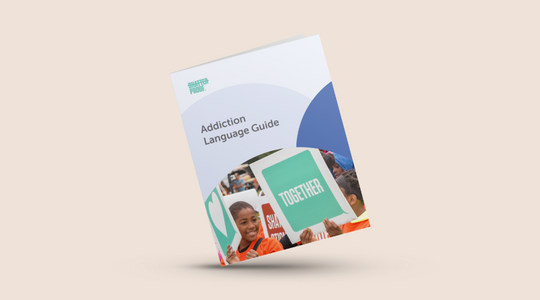
Comprehensive addiction language guide to reduce use of stigmatizing language.
“Substance Abuser”
Stigmatizing Label: Being called a “substance abuser” often feels stigmatizing and judgmental, as it implies moral failure or personal weakness rather than recognizing the condition as a medical issue.
Negative Self-Perception: This term can foster negative self-perception and shame, making individuals feel labeled and boxed into a negative stereotype that ignores their broader identity and struggles.
Reduced Empathy: It may contribute to a lack of empathy from others, as the term focuses on the behavior in a negative light, potentially decreasing the likelihood of receiving compassionate support and effective treatment.
“Person with Substance Use Disorder”
Humanized Language: Being referred to as a “person with substance use disorder” acknowledges the individual first, emphasizing their humanity and dignity beyond their condition.
Medical Recognition: This terminology frames the issue as a medical disorder, highlighting that it is a health condition that requires treatment and understanding, rather than blame.
Empathy and Support: It can evoke greater empathy and support from others, as the language is more neutral and respectful, encouraging a more compassionate and supportive response.
Reducing stigma is essential for fostering inclusive, understanding, and supportive communities. Whether the stigma revolves around mental health, substance use disorder, physical disabilities, racial and ethnic identities, or any other aspect of human diversity, taking active steps to mitigate it can lead to significant improvements in individual and societal well-being. Addressing stigma involves a multi-faceted approach that focuses on changing perceptions, policies, and behaviors. Through these efforts, we can create environments where all individuals feel valued, respected, and empowered. By exploring action steps to reduce stigma, we can identify practical strategies to promote empathy, awareness, and positive change in our broader society.
Join Matthew Stefanko, a past strategic advisor at Shatterproof, as he discusses ending addiction stigma in treating pain and opioid use disorder. Discover key strategies to reduce stigma for patients and effective communication tactics.

Comprehensive addiction language guide to reduce use of stigmatizing language.
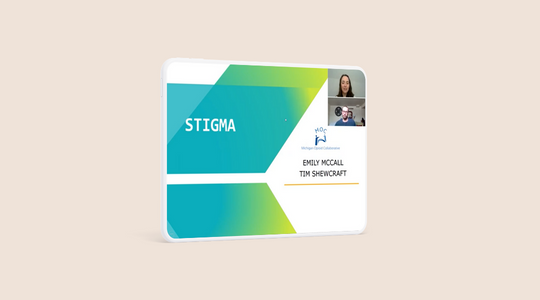
Emily McCall and Tim Shewcraft from the Michigan Opioid Collaborative (MOC) share information about stigma and MOC’s resources for MOUD providers. Tim, a peer recovery coach, shares his personal experience with stigma and the impacts that provider stigma can have on a patient’s OUD treatment.
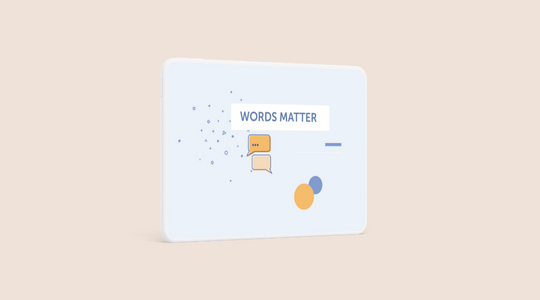
Changing our language improves outcomes for those struggling with addiction. Watch this brief video to learn more.